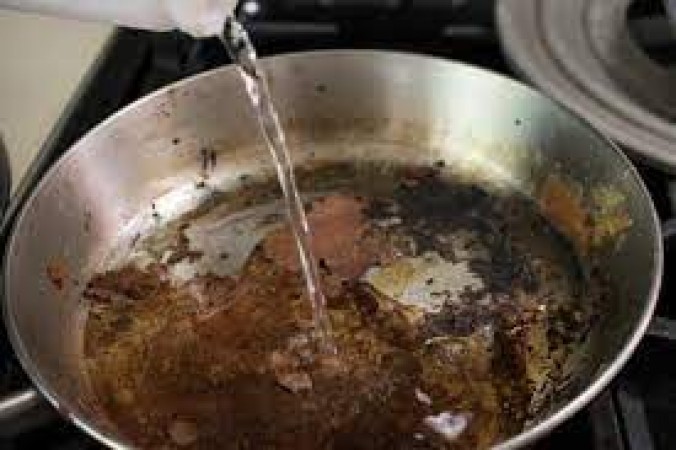
Cleaning non-stick pans can be a daunting task, especially when food residues and grease build up over time. Fortunately, there are effective and eco-friendly solutions available right in your kitchen. In this article, we will explore three remarkable cleaning tricks using vinegar and baking soda that will help restore the shine and functionality of your non-stick pans.
Understanding Non-Stick Pans
Non-stick pans have become a staple in modern kitchens, providing a convenient way to cook with less oil and ensure that food doesn't stick to the surface. However, proper care is essential to maintain their performance and longevity.
Why Opt for Natural Cleaning Agents?
Using harsh chemicals and abrasive scouring pads on non-stick pans can damage the delicate coating. Opting for natural cleaning agents like vinegar and baking soda not only ensures effective cleaning but also preserves the integrity of the non-stick surface.
The Dynamic Duo: Vinegar and Baking Soda
Vinegar and baking soda are two versatile ingredients found in most households. They have natural cleaning properties that work wonders on various surfaces, including non-stick pans. When combined, their chemical reaction creates a powerful yet safe cleaning solution.
Trick 1: Gentle Cleansing with Vinegar
Fill the pan with equal parts of water and vinegar. Allow the mixture to simmer for a few minutes. The acetic acid in vinegar will help loosen food particles and grease. After simmering, use a soft sponge to wipe off the residues. Rinse the pan thoroughly and dry it with a soft cloth.
Trick 2: Baking Soda Paste for Stubborn Stains
For tough, baked-on residues, baking soda comes to the rescue. Create a paste by mixing baking soda with water until it forms a thick consistency. Apply the paste to the stained areas and let it sit for about 20 minutes. Gently scrub with a non-abrasive sponge and rinse well.
Trick 3: The Vinegar-Baking Soda Combo
This dynamic duo can work wonders when combined. Sprinkle baking soda over the pan's surface, and then spray vinegar over it. The resulting fizz will help dislodge stubborn residues. Let the mixture sit for a few minutes before scrubbing and rinsing.
Avoiding Abrasive Cleaners and Utensils
Abrasive cleaners and utensils can scratch the non-stick coating, rendering it less effective. Stick to soft sponges, brushes, or cloths to maintain the pan's surface without causing damage.
Preserving the Non-Stick Coating
To extend the life of your non-stick pans, avoid using cooking sprays and excessive heat. Opt for utensils made of wood, silicone, or plastic to prevent scratches.
Benefits of Regular Maintenance
Regular cleaning prevents the buildup of residues and prolongs the pan's non-stick properties. Incorporate these cleaning tricks into your routine to ensure your pans remain in top-notch condition.
Quick Tips for Efficient Cleaning
Myth: Non-stick pans are indestructible.
Fact: They require proper care to maintain their effectiveness and longevity. Cleaning non-stick pans doesn't have to be a chore. By harnessing the power of vinegar and baking soda, you can keep your pans clean, shiny, and functional for years to come.
7 Simple Makeup Techniques For Plump, Pouty Lips